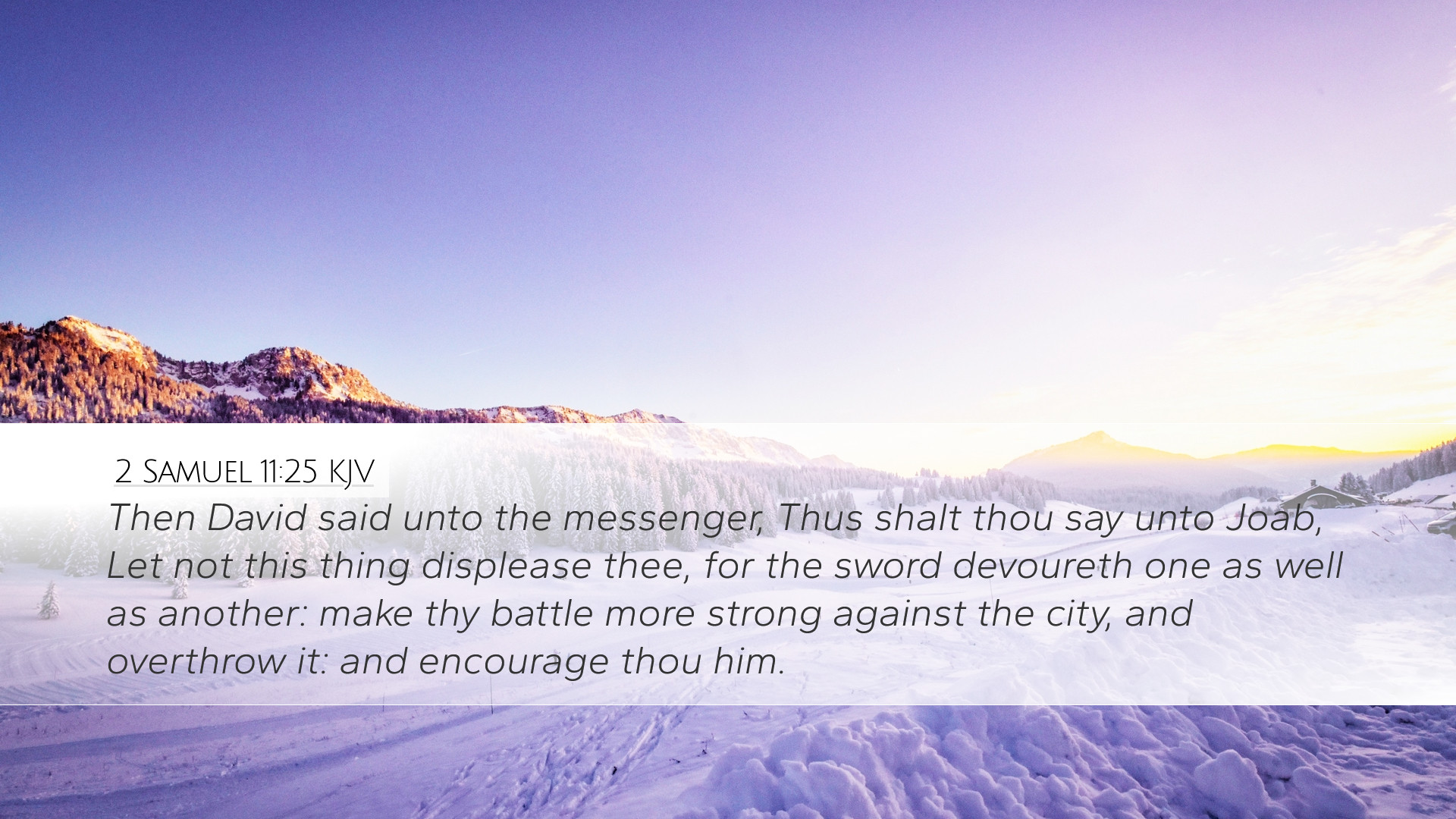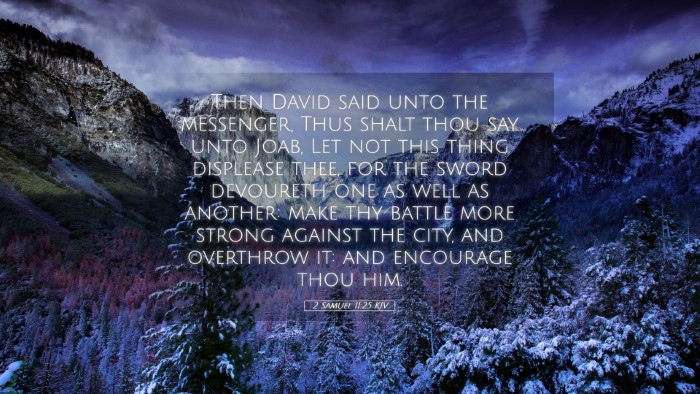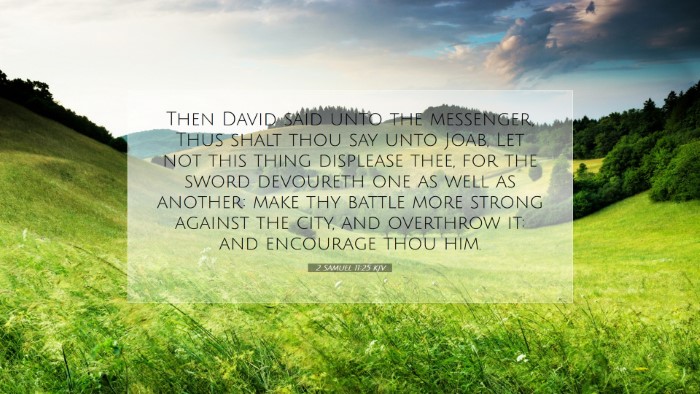Old Testament
Genesis Exodus Leviticus Numbers Deuteronomy Joshua Judges Ruth 1 Samuel 2 Samuel 1 Kings 2 Kings 1 Chronicles 2 Chronicles Ezra Nehemiah Esther Job Psalms Proverbs Ecclesiastes Song of Solomon Isaiah Jeremiah Lamentations Ezekiel Daniel Hosea Joel Amos Obadiah Jonah Micah Nahum Habakkuk Zephaniah Haggai Zechariah MalachiVerse
2 Samuel 11:1 2 Samuel 11:2 2 Samuel 11:3 2 Samuel 11:4 2 Samuel 11:5 2 Samuel 11:6 2 Samuel 11:7 2 Samuel 11:8 2 Samuel 11:9 2 Samuel 11:10 2 Samuel 11:11 2 Samuel 11:12 2 Samuel 11:13 2 Samuel 11:14 2 Samuel 11:15 2 Samuel 11:16 2 Samuel 11:17 2 Samuel 11:18 2 Samuel 11:19 2 Samuel 11:20 2 Samuel 11:21 2 Samuel 11:22 2 Samuel 11:23 2 Samuel 11:24 2 Samuel 11:25 2 Samuel 11:26 2 Samuel 11:27

